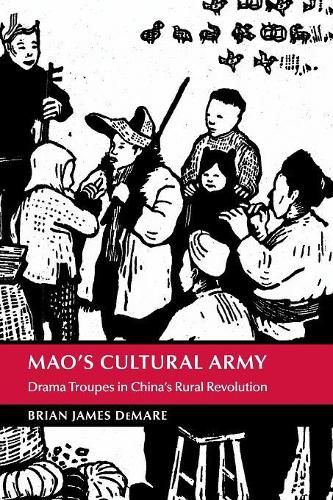Readings Newsletter
Become a Readings Member to make your shopping experience even easier.
Sign in or sign up for free!
You’re not far away from qualifying for FREE standard shipping within Australia
You’ve qualified for FREE standard shipping within Australia
The cart is loading…






Charting their training, travels, and performances, this innovative study explores the role of the artists that roamed the Chinese countryside in support of Mao’s communist revolution. DeMare traces the development of Mao’s ‘cultural army’ from its genesis in Red Army propaganda teams to its full development as a largely civilian force composed of amateur and professional drama troupes in the early years of the People’s Republic of China (PRC). Drawing from memoirs, artistic handbooks, and rare archival sources, Mao’s Cultural Army uncovers the arduous and complex process of creating revolutionary dramas that would appeal to China’s all-important rural audiences. The Communists strived for a disciplined cultural army to promote party policies, but audiences often shunned modern and didactic shows, and instead clamoured for traditional works. DeMare illustrates how drama troupes, caught between the party and their audiences, did their best to resist the ever growing reach of the PRC state.
$9.00 standard shipping within Australia
FREE standard shipping within Australia for orders over $100.00
Express & International shipping calculated at checkout
Charting their training, travels, and performances, this innovative study explores the role of the artists that roamed the Chinese countryside in support of Mao’s communist revolution. DeMare traces the development of Mao’s ‘cultural army’ from its genesis in Red Army propaganda teams to its full development as a largely civilian force composed of amateur and professional drama troupes in the early years of the People’s Republic of China (PRC). Drawing from memoirs, artistic handbooks, and rare archival sources, Mao’s Cultural Army uncovers the arduous and complex process of creating revolutionary dramas that would appeal to China’s all-important rural audiences. The Communists strived for a disciplined cultural army to promote party policies, but audiences often shunned modern and didactic shows, and instead clamoured for traditional works. DeMare illustrates how drama troupes, caught between the party and their audiences, did their best to resist the ever growing reach of the PRC state.